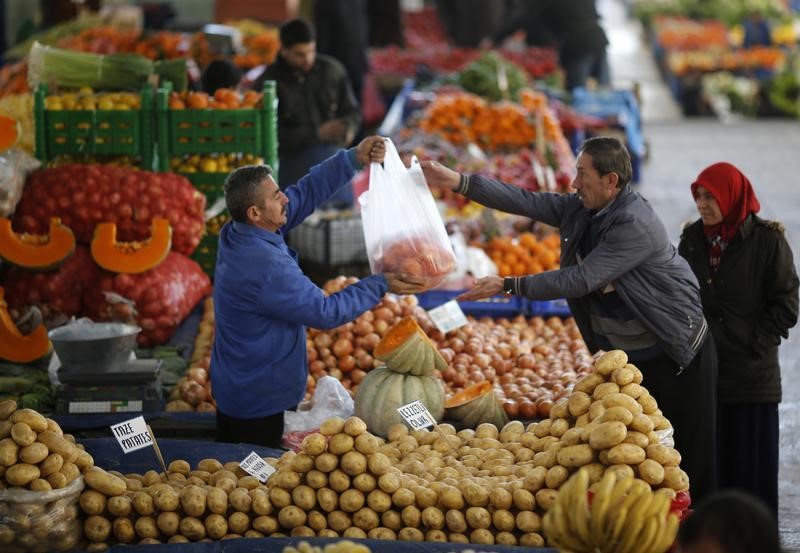By Scott Kanowsky
Investing.com -- Inflation in Turkey soared in August, registering the highest annual increase during President Recep Tayyip Erdoğan's nearly two decades in charge of the country.
Consumer prices grew by 80.21%, up from the previous reading of 79.60%, but below economists' expectations of 81.22%. Accelerating rent hikes, higher utility costs, and a weakening in the value of the lira were the main drivers of this uptick, according to analysts at ING.
The pace of inflation showed further signs of deceleration, with the consumer price index coming in at 1.46% on a monthly basis - the lowest reading this year. It is down from a mark of 2.37% in July, itself a decrease from 4.95% in June.
Government officials in Turkey have said they expect inflation to continue cooling over the next two years. The country's finance minister even predicted over the weekend that annual price growth will fall to as low as 25% in 2023.
The ING analysts predicted inflation will peak to above 85% in October before a decline to a year-end mark of below 70%.
"But risks lie to the upside given the deterioration in pricing behaviour, higher trend inflation and currency moves," the ING analysts wrote in a note, adding that slowing domestic demand in the second half of 2022 may limit some upward pressure on prices.
Despite the inflation surge, Turkey's central bank cut its key interest rate by a full percentage point in August after it was held steady for the past year. Many economists were baffled by the decision, with Chatham House associate fellow Timothy Ash calling it "crazy."
The bank justified its action by pointing to an expected growth slowdown in the current quarter and expectations that a process of disinflation will soon set in after a rise in prices in the spring triggered by Russia's invasion of Ukraine.
However, observers have questioned the bank's neutrality. Erdoğan, who has overseen a decade of unorthodox and often erratic macroeconomic policies, fired his last central bank governor for failing to accommodate his economic stimulus policies by keeping interest rates too high as the effects of the 2018 currency crisis eased.
Erdoğan has instead remained committed to maintaining borrowing costs at the world's lowest level in real terms in a bid to help spur economic growth, dubbing interest rates as "the mother of all evil."
